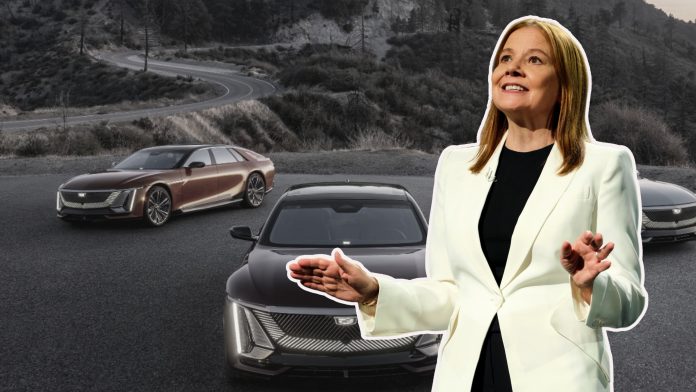General Motors (GM) is urging lawmakers and employees to help overturn California’s electric vehicle mandate. The company is actively lobbying Congress to revoke California’s emission waiver, which allows stricter tailpipe-emission rules. The news was first reported by The Wall Street Journal.
California’s 2022 rule seeks to ban new gasoline-powered vehicles by 2035. The state’s federal waiver allows it to implement aggressive environmental targets. Eleven other states have adopted similar mandates. However, the Senate could vote as early as next week to revoke the waiver, preventing California from enforcing its stricter standards.
Once a supporter of California’s electrification efforts, GM is backtracking. The automaker, one of America’s leaders in the EV market, abandoned its internal target to manufacture 400,000 electric vehicles by mid-2024. The auto giant argues that the policies need to reflect real-world market conditions. It’s advocating for a unified national emissions policy that prioritizes consumer choice, affordability, and aligns with current demand.
In an internal email, GM called on thousands of its employees to contact their senators, provided scripted talking points focused on the economic impact of overly aggressive regulations.
The electric market is starting to slow, and sales are weakening. EV sales fell 5% in April even as the broader auto market grew by 10%. EVs represent just 7% of the overall U.S. car market. Even in California, the leader in electrification, EVs account for only 20% of the car market, significantly below the state’s 2026 target of 35%.
Affordability remains a significant concern. Federal tax incentives that historically boosted EV sales are under threat in Congress, and many automakers are scaling back or delaying EV production plans in response. Dealers nationwide, especially in mandate-aligned states, are reporting difficulty moving EV inventory even with manufacturer and government support.
While some EV makers like Tesla and Rivian remain committed to long-term electrification, GM’s recent pivot highlights the broader market reality. Without sustained consumer demand and supporting infrastructure, overly ambitious regulatory targets will outpace what the industry and American car buyers can reasonably deliver.



